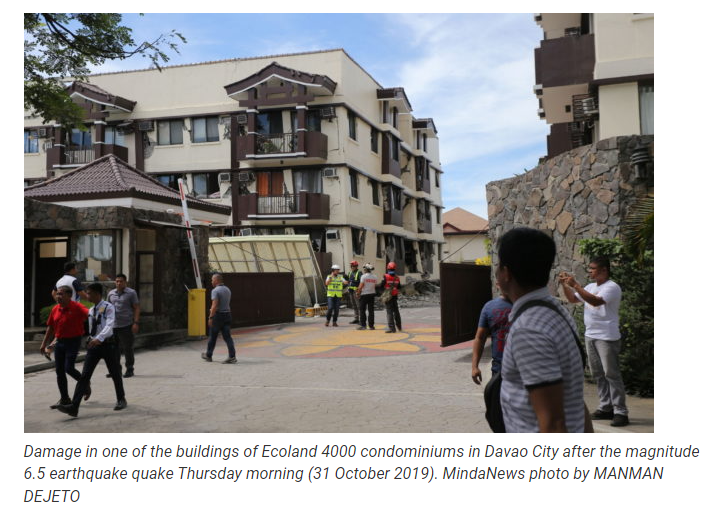Davao City Council Passes Groundbreaking Legislation for Earthquake Preparedness
Davao City Council – In a significant move, the Davao City Council has given its final approval to an ordinance aimed at enhancing earthquake disaster prevention and response. This legislation also paves the way for the establishment of a dedicated Davao City Earthquake Response Task Force.
Related: Davao IPs fight to revive culture: Embracing heritage every day | SunStar PH
Councilor Edgar Ibuyan Jr., representing the First District, spearheaded this initiative, intending to localize and strengthen the current earthquake disaster prevention and response measures by incorporating key provisions from the National Building Code.
The newly approved ordinance will adopt the General Building Requirements outlined in Section 104 of the National Building Code, which stipulates that all buildings must be designed to serve their intended purposes and constructed in compliance with safety standards.
Moreover, the ordinance will introduce building guidelines drawn from Section 105.2 of the same law. These guidelines mandate that “every building located in Seismic Zone 4 and exceeding 50 meters in height” must be equipped with a minimum of three Earthquake-Recording Instrumentation (ERI) units, unless waived by the Building Official.
These ERIs are strategically positioned within the building, typically in the basement, midsection, and near the top, ensuring easy access and freedom from obstructions. Following the guidelines established by the Department of Public Works and Highways (DPWH), the placement of ERIs within buildings is crucial for recording seismic activity. This data can be invaluable for engineers and local authorities in assessing a building’s structural integrity during and after an earthquake.
Under this ordinance, both government and private structures exceeding 50 meters in height will be required to install three accelerographs. Additionally, public and private hospitals with a minimum capacity of 50 beds, public and private schools boasting at least 20 classrooms, and city halls and buildings will need to install two accelerographs. Furthermore, commercial buildings with a minimum occupancy of 1,000 people or a gross floor area of at least 10,000 square meters will also require two accelerographs.
In conjunction with the establishment of the Davao City Earthquake Response Task Force, various Technical Support Teams, comprising Rapid Action, Surveillance, Research, and Information, Education, and Communication (IEC) Teams, will be established to ensure swift and effective responses during earthquake disasters in the city.
See also Maharlika Wealth Fund: A Potential Boon for Davao City
The ordinance also stipulates that “building permits will only be issued for buildings that meet the seismic instrumentation requirements.”
Failure to comply with the ordinance will result in penalties, starting with a P3,000 fine for the first offense, increasing to P5,000 for the second offense, and ultimately leading to the revocation of the building permit following the third offense.

